For Dexter fans who wanted a better ending than season 8’s finale, which featured Deb’s death just before Dexter drives his boat into a storm, only to resurface as a lumberjack in the closing minutes, the miniseries Dexter: New Blood was reason to rejoice. It fixed season 8’s major mishaps while giving us one more taste of Michael C. Hall as that lovable serial killer. It also brought back Jennifer Carpenter’s Deb, though this time as her bro’s conscience. Part of what made the initial series such a hit was its indelible score, especially its iconic opening. Daniel Licht was the show’s original composer. However, showrunner/producer Clyde Phillips had to find a new composer for Dexter: New Blood because, tragically, Licht died of cancer in 2017 at the age of 60. Cue Pat Irwin, a former member of the B-52’s who worked with Philips on several previous projects.
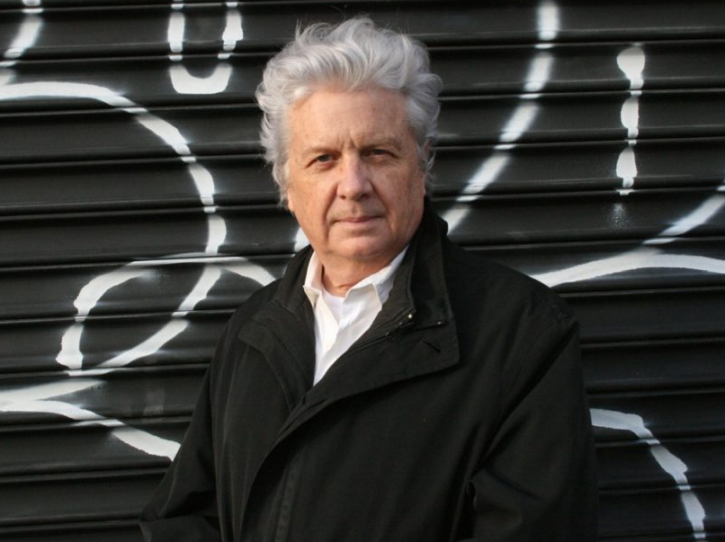
Pat Irwin
Irwin had big shoes to fill, especially because he had to envision a new score emblematic of the change in location. While the initial run of Dexter was set in Miami and had music that reflected the sunny location, New Blood is set in wintertime rural New York. Though Irwin wanted to feature some callbacks to the original series, he had to create music that reflected this new place and time. Dexter: New Blood finds Dexter at a completely different place in his life, faking his identity, before the truth about his days as the Bay Harbor Butcher ultimately surfaces.
Irwin chatted with us about his musical career and the challenges of creating the right sound for Dexter: New Blood.
You’ve played in bands before, most notably the B—52’s. Tell us about that transition from playing in a band to composing music for TV?
It wasn’t exactly a transition. It was just part of the process. When I moved to New York in the late 70s, it had this creative, collaborative buzz. Filmmakers were in bands. Musicians were in movies, and painters were musicians and dancers. There were opportunities to collaborate. I was in a band called The Raybeats. I lived around the corner from the sound studio where the Talking Heads rehearsed. It was also where a show called Tales from the Darkside was shot. I walked across the street, and I was asked if I wanted to work on Tales from the Darkside. I said, yes, of course.
When you’re in a band, you collaborate. It’s really a learning process. It’s the same kind of process when you work on a television show or film. I don’t mean to say it wasn’t a transition, but it was part of the deal. I also love movies. I wanted to be part of that world.
You’ve worked with Dexter showrunner/producer Clyde Phillips in the past on other shows, including Nurse Jackie and Feed the Beast. What was your reaction when you got that call about working on Dexter: New Blood?
It was a thrill. It was a fantastic opportunity and a pretty big deal. Dexter was a very popular show that I loved. So, I wanted to know what was going to happen to this character. To be part of it was great.
Dexter: New Blood has moments when the music calls back to the original series. How did you achieve that?
First of all, the original score is fantastic. It’s haunting and beautiful and contributes to the storytelling in a really remarkable way. It’s also subversive. It’s not always scary but it creates a tone. I knew that I was going to be working with characters that were familiar to the audience, while at the same time, it’s a new show, in a new location with new characters, too. It needed a new sound. It’s cold and austere. The opening is very solitary. Dexter’s creating a new life for himself, but at his core, he’s the same person. He’s not going to be rehabilitated or changed, so I wanted to recall those moments that would put the audience into that place. But I wanted to do it in a completely new way, minimal, austere, cold, almost fragile.
What were some of the challenges of creating a totally new score for this miniseries, while also writing a score for some old characters, like Deb and Harrison (Jack Alcott), who have also evolved since the initial series?
Both Deb and Harrison are crucial to the story. I’ll start with the relationship between Dexter and Harrison. That was something I really wanted to treat like it was on a long curve, from the first time we see Harrison as a grown kid to the end of the series. It was challenging. I wanted to create something very stark and minimal, while also tuneful. It also had to be fragile. It could only go in one way, but I also didn’t want to give it [the ending] away. The ending was not going to make everyone happy, and that was difficult.
With Deb, it was much more of a ghostly presence. I was happy to see her because she was such a compelling character in the original. I was glad she was there, but she’s not the same. Now, she’s like the voice of [Dexter’s adoptive father] Harry (James Remar). It’s this simmering undercurrent. That’s what I wanted to create with her.
In terms of process, would you read the scripts first before composing for an episode, and did you know about the ending well in advance?
They kept the ending away from everyone. It was a secret. They didn’t want anyone to know. I didn’t know how it would end, so I kind of guessed. I received a couple of the scripts, not all of them before I received any pictures. I tried to create a sound based on those scripts. For instance, one script describes the sound of Dexter’s boots in the snow. I know that environment, that cold. I wanted to create that feeling. They were very busy shooting and piecing together this story. They had some challenges, not only COVID, but also the weather. So my time with Clyde was limited, but when I finally had a conversation with Clyde and the other producers, which included Michael C. Hall and writer Scott Reynolds, I began to get a clearer picture of what they wanted and the relationship between the images to the score. They wanted this to be new. We’re not in Miami anymore. I must confess that my first attempts at coming up with ideas, based on the original score and the scripts, didn’t exactly get what they had in mind. I didn’t understand the degree of solitude. But I think I got it eventually.
The original series was set in Miami, and that location left a mark on the music. The music was warmer and more melodic, reflecting that setting. Which instruments did you use to reflect the colder, rural setting of Dexter: New Blood?
I dusted off a couple of synthesizers that I used when I was in the B-52’s and even before then, very analog, gritty sounds. I wanted to create a certain distance. I was really influenced by a couple of soundtracks, like Chernobyl. That really knocked me out. Watchmen and Ex Machina also knocked me out. I learned quickly that it’s not that easy to do that kind of thing. It took some layering, but I’m a big fan of that ambient kind of music. Underneath that, I also have some guitar. I have some old amplifiers from the 50s that I set up to get this ringing feedback that I would blend in with an old synthesizer. I wanted to create a chilly, simmering atmosphere.
Dexter: New Blood also has some great rock ‘n roll tunes in it, like Iggy Pop’s “The Passenger” and tracks from Blondie, Blue Oyster Cult, and Dinosaur Jr., among others. Did you pick these songs?
No, I didn’t pick them. In past projects I’ve worked on, when there have been songs, I kind of rolled with it. With this, the songs had a much more important place. I would have to frame these songs. I didn’t want to overshadow them, but at the same time, I wanted to make sure the songs were highlighted. I wanted to make sure they were visible, audible, and clear.
If there is a spinoff series, maybe following Harrison, would you come back, and if so, what do you envision in terms of potential story and music?
Oh, man, I would definitely return. I think it would be a new show. I don’t know where the location would be. For some reason, during those final minutes, I felt like Harrison was driving to the Midwest. I don’t know why. For all I know, he could be driving back to Miami. But I would go back to a more tuneful place. Maybe we’d have to recall bits of Dexter: New Blood the way I recalled parts of the original Dexter. I don’t have a clue what the plans are if any, but I think I would want it to be a little more tuneful and melodic. I’d like to bring in more guitars, which I did bring in occasionally for Harrison. Take it from there and build up a new sound.
I think Dan Licht’s score is beautifully inventive, but also traditional. The scenes are clear and clearly stated. I’d want to call back to something that clear.
Thank you so much, Pat, for taking the time to talk with us. Keep us updated on your future projects, especially if they involve Dexter!
One Comment
Comments are closed.

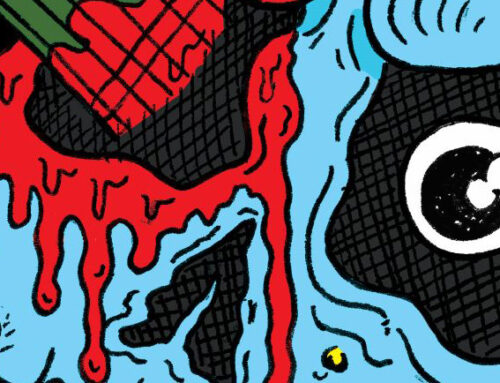
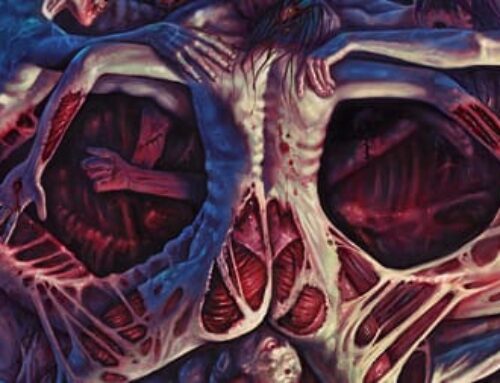
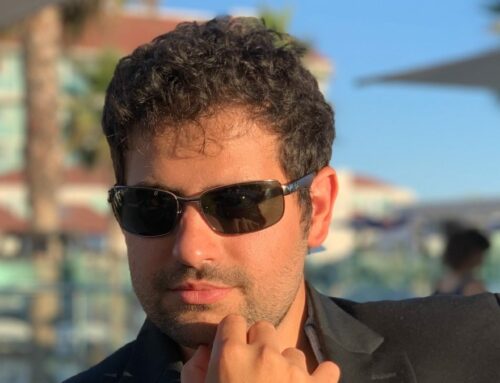
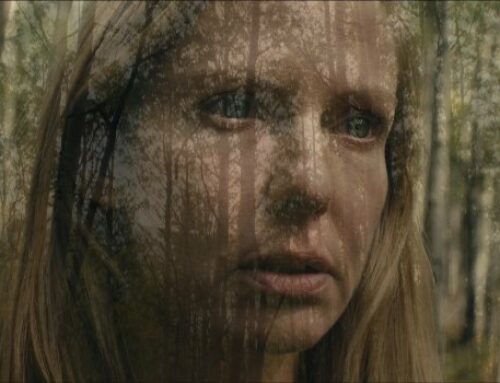
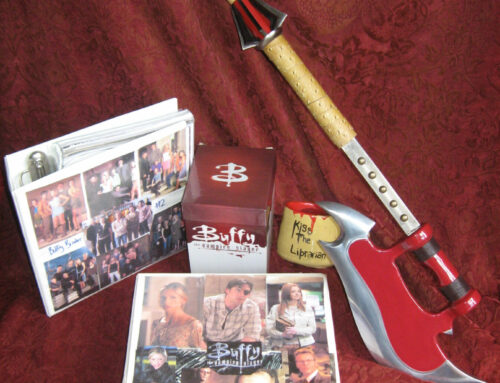
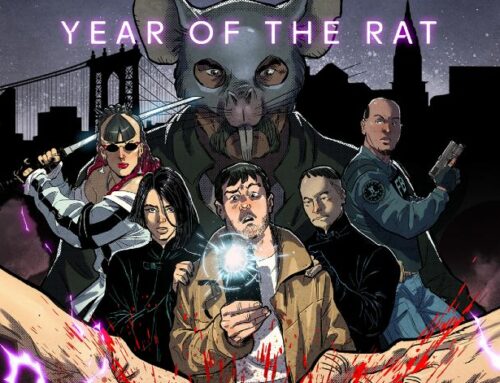

[…] man, I would definitely return,” he told the website Horror Buzz. “I think it would be a new show. I don’t know where the location would be. For some reason, […]